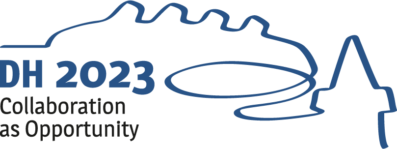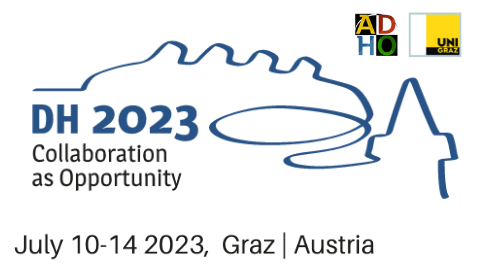The legitimacy of overturning intellectual legacies has been systematically reflected upon since Kant, and has become an established part of the history of science as a means of navigating continuity, rupture and reconceptualization. Digital Humanities rely on such a self-understanding, drawing a direct line from the traditional humanistic disciplines while striving to go beyond their mere imitation: Digital Humanists tend to construct themselves as revolutionary champions confronting the old guard. But opposing an authority requires a clear identification of that authority, and the overall deconstructive work in Social Sciences and Humanities (SSH) disciplines in the past decades has made it increasingly more difficult to define a single authoritative position that can be identified as representative of the entire discipline. Overcoming disciplinary canons with the help of digital methods has turned from a rebellious rallying cry to a standard selling point for grant applications. To what extent do Digital Humanities still carry an authentically revolutionary potential and what are the implications of the revolutionary rhetoric for the kinds of research questions that we ask and the communities that we embody?
The entire field of Digital Humanities — whether revolutionary or not — is evolving against the backdrop of global capitalism in its electronic mode, the so-called “eEmpire”, which is sustained by “a loose assemblage of relations characterized by… flexibility, functionality, mobility, programmability, and automation.” (Raley 2004). Wouldn’t it be naive to think that our field is immune to economic and ideological tensions that characterize information capitalism? And wouldn’t it be even more naive to think that we can build and deploy digital tools that function in some abstract networked space unburdened by politics and ideology?
These kinds of questions embrace the self-definitory work that has marked the discipline since its beginning. Beyond this reflection, we would like to invite the DH community to investigate the plurality of“Revolutions”: What revolutions — if any — are still possible within the Digital Humanities? Why and how could these revolutions bring the DH community forward? Which blind spots hinder us in the realization of a full revolution? Which forms of individual or collaborative action could be envisioned to materialize revolutionary thinking in the Digital Humanities? Does the climate crisis call for a revolution, and if so, of what kind?



